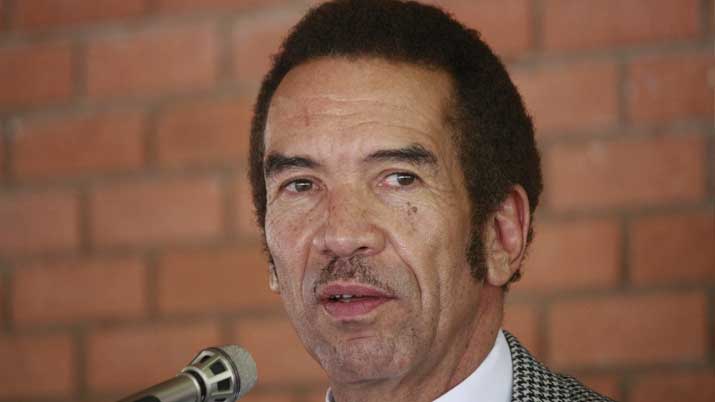The debate continues on whetherBotswana should pursue rooftopdiplomacy or a silent diplomacyand whether its foreign policy is ethical ornot. Since the ascendance of President IanKhama in April 1st 2008, there has been afundamental paradigm shift in the pursuit offoreign policy, in particular pronouncementsabout developments in other countries. Therehas, however, not been a dramatic change inBotswana’s multilateral posture and bilateralrelations. The President, unlike his predecessors,has taken a backseat as the country’schief diplomat; he seldom attends summitsand other international meetings of heads ofstates and governments.Botswana’s foreign policy under Khamahas been subject to sharply differing interpretations.
Some observe that the country’sforeign relations since Khama is shaped bya leader who promotes democracy with itskey tenets of human rights, the rule of lawand universal adult suffrage. For critics, however,Botswana’s foreign policy has been disjointed,kneejerk, and prejudicial to regionalstability as well as detrimental to the Pan-Africanist agenda.Does Botswana’s foreign policy includeethical considerations, as its supportersclaim? The evidence suggests it does, albeiterratically, disingenuous and somewhat onthe surface.Botswana’s has continuously asserted itscommitment to the Rome Statute establishingthe International Criminal Court (ICC)and has in the past distanced itself from theAU decision not to help arrest Sudan’s PresidentOmar Hassan Al Bashir who is wantedby ICC. The country has also supported theICC in its indictment of Muammar Gaddafi .
The ICC issue also pitted Botswana againstKenya over the court’s indictment of UhuruKenyata, William Ruto and other Kenyanpoliticians. Botswana has consequently beenlabeled a puppet of the West, because the ICCis perceived by some in Africa as a Westernagenda to single out anti-West African leaders.It is often argued that the ICC has turneda blind eye on those African leaders who violatedhuman rights but are in Western governments’good books and other violators ofhuman rights who are not Africans.On July 1 2003 the Bush administration issueda stiff ultimatum that it would be immediatelycutting off all military aid to certaincountries unless their leaders signed bilateralagreements guaranteeing the total immunityof all Americans (military and civilian) beforethe International Criminal Court (ICC).Botswana is among countries which signedthis agreement; it would seem in response tothe administration’s July 1 ultimatum. Thefact that Botswana is ready to assist ICCwith arresting fellow Africans but not readyto do the same with American citizens raisesdoubts about the merit of the position.Botswana has publicly criticized ZimbabweanPresident Robert Mugabe for stealingthe vote in 2008 and 2013, something it didnot do in 2002 when Mugabe did the samething.
It criticized former President of Coted’Ivoire Laurent Gbagbo for refusing to acceptdefeat in the November 2010 electionsand prematurely invited the winner, AlassaneOuattara, for a state visit. Andre Rajolina ofMadagascar was not spared by Botswanafor what it perceived as a coup d’état. Thecountry also criticized Syria for the ongoinghuman rights violations. However, Botswananever criticizes Swaziland for outlawing politicalparties and limiting democratic space.One could impudently argue that Botswana’sposition is premised on ethical principlesif the country was consistent and adhering tointernational law, treaties and conventions tothe letter.
The country is in the habit of pickingand choosing. Sometimes it only signsand not ratify and if it ratifi es in some casesit doesn’t domesticate into legislation and ifit domesticates into law and policy, it doesn’timplement.On the domestic front, the country’s humanrights record is not very impressive andits democracy is regressing. It is diffi cult topresuppose that foreign policy positions ona variety of issues are based on principle. Aprobable conclusion therefore is that Botswana’sposition is inspired by the quest for internationalpolitical expediency. Internationally,it is exhibiting an attitude of superior virtue,which is not sustainable given the aforementionedreasons.

